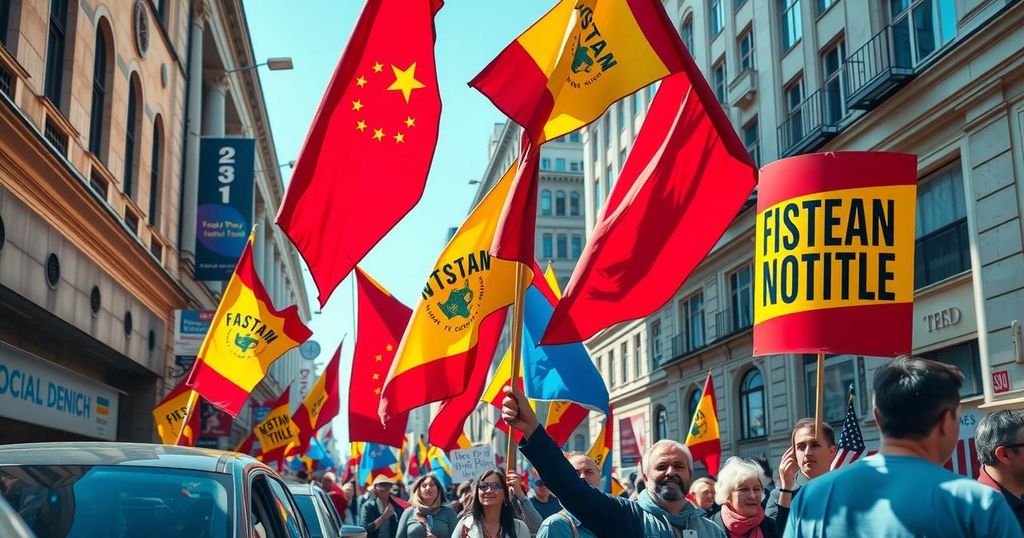On March 12, Argentina witnessed heavy police repression during a protest against pension cuts, leading to numerous injuries and detentions. The incident has raised alarms over the increasing criminalization of dissent and government narratives labeling protests as threats to stability. Human rights organizations underscore the urgency for accountability and compliance with international human rights standards.
On March 12, social and human rights organizations expressed concern over the violent repression of a demonstrative protest in Buenos Aires, termed the “march for the retired.” This protest, occurring weekly, opposes cuts in pensions and healthcare amid severe economic adjustment challenges. Law enforcement actions were viewed as excessive and contrary to both regional and international norms that support the right to peaceful protest.
The consequences of the police response were grave, with over 20 individuals hospitalized and 114 detained, including two minors. The City of Buenos Aires courts released these detainees due to insufficient grounds for their arrest. Incidents included the assault of an 87-year-old woman by Federal Police and the critical injury of photographer Pablo Grillo, struck by a tear gas canister. Children outside a nearby school were also affected by the gas, demonstrating the indiscriminate nature of the police crackdown.
The use of gas guns during protests was prohibited until recently, when President Javier Milei’s administration repealed existing regulations. As of December 2023, any demonstrations featuring street blockades have been criminalized. Furthermore, this administration has granted security forces authority to disperse protests, use firearms, and gather personal data of protest participants, contributing to a hostile environment for dissent.
The repression of protests has become a systemic tool for the Argentine government to suppress dissent, shrinking democratic freedoms. In 2024 alone, 93 individuals faced arbitrary detentions linked to protests, with over 600 sustaining injuries of varying intensity. The events of March 12 underscored an alarming trend leading to increased casualties in such gatherings.
Government rhetoric has increasingly framed protests as efforts to destabilize the administration, with officials labeling demonstrators as part of a coup attempt or calling them “terrorist leaders.” The Minister of Security has defended the police’s actions and mentioned pursuing charges for “sedition” against protesters, including also threatening to deport migrant participants. Such governmental narratives risk undermining fundamental democratic rights, including public assembly and freedom of speech.
Solidarity is expressed with those advocating for improved living conditions in Argentina, alongside a call for governmental adherence to international obligations regarding human rights. Authorities are urged to conduct a thorough investigation of police actions to address misconduct, as concerns grow over the deterioration of civic space and the encroachment of authoritarianism within Argentina. It is critical for Latin American nations to advocate for democracy and the protection of human rights across the region.
In summary, the escalation of violence against social protests in Argentina exemplifies a systemic approach to repress dissent under the current government. The alarming increase in detentions and injuries highlights significant concerns regarding the infringement of democratic rights. The need for accountability and adherence to international human rights standards is paramount to foster a safe environment for expression. Solidarity with affected citizens is essential to counter the looming authoritarianism threatening Argentina and the broader region.
Original Source: www.wola.org






